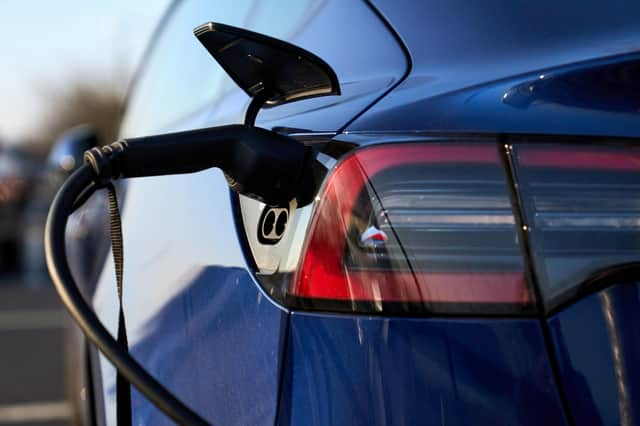Council doing virtually zero about reaching net zero - Sue Webber


Doing my bit to keep emissions down I changed to an electric vehicle (EV) a couple of years ago and another benefit is the car park’s charging points. I love my EV, but charging is unquestionably a major issue, and journeys of any distance are a logistical challenge to ensure it doesn’t run out of power.
My car doesn’t have a huge range – few of them do – and the charge soon goes down in the colder months when the heater, washers and wipers, never mind the radio, are running. Vigilance is needed.
Advertisement
Hide AdAdvertisement
Hide AdIt’s just as well there’s power at work because living in a flat I can’t recharge at home and I regularly find myself sitting on my own at night in some gloomy service station while the battery tops up. Not great for a single woman.
This is the reality facing EV drivers who don’t have a driveway and their own charging point; the infrastructure simply isn’t there to support many more, and in Edinburgh the council is doing little to encourage expansion beyond the 312 available now.
It’s all very well banging on about achieving net zero by 2030 when you are doing virtually zero about it. Worse, the authority is now consulting on a workplace parking levy (WPL) which could hit drivers with a fee of up to £750 a year for access to the only place they can guarantee an available charger.
The WPL is supposed to be part of the plan to help Edinburgh reach net zero, but instead it could be an added disincentive to go electric.
Advertisement
Hide AdAdvertisement
Hide AdBut the lack of power availability is only one drawback. This week I received a recall notice after the car’s two-year service, something to do with a battery update and will be in dock for a week. I’m assured it’s nothing critical, which is just as well because the first appointment the garage could give me was July 2024.
For EV drivers, there is no “just bring it round and we’ll take a look,” and I have no idea what happens if there is something seriously wrong, but there is plenty of anecdotal evidence of people calling out an emergency breakdown service only to be told they need Elon Musk or Bill Gates to fix the problem, not a mechanic.
Like the charging infrastructure, there simply aren’t enough qualified EV software engineers to handle the demand, and why would someone with computer skills think their future lay in a garage? A vast amount of effort is needed to provide the motor industry with the skills it needs and it’s not going to happen overnight.
It is for these reasons that the Prime Minister’s decision to stay the execution of new petrol and diesel vehicles to 2035 was exactly the right thing to do, just as it was wise to approve production at the Rosebank oilfield.
Advertisement
Hide AdAdvertisement
Hide AdThe only environmental war being declared is by unhinged zealots like TV presenter Chris Packham on ordinary people, and the sooner they accept transition is not a switch-off and net zero doesn’t mean absolute zero, the better.
Sue Webber is a Scottish Conservative MSP for Lothian
Comment Guidelines
National World encourages reader discussion on our stories. User feedback, insights and back-and-forth exchanges add a rich layer of context to reporting. Please review our Community Guidelines before commenting.